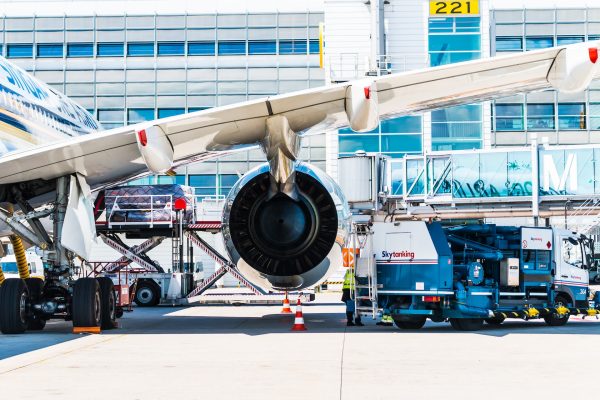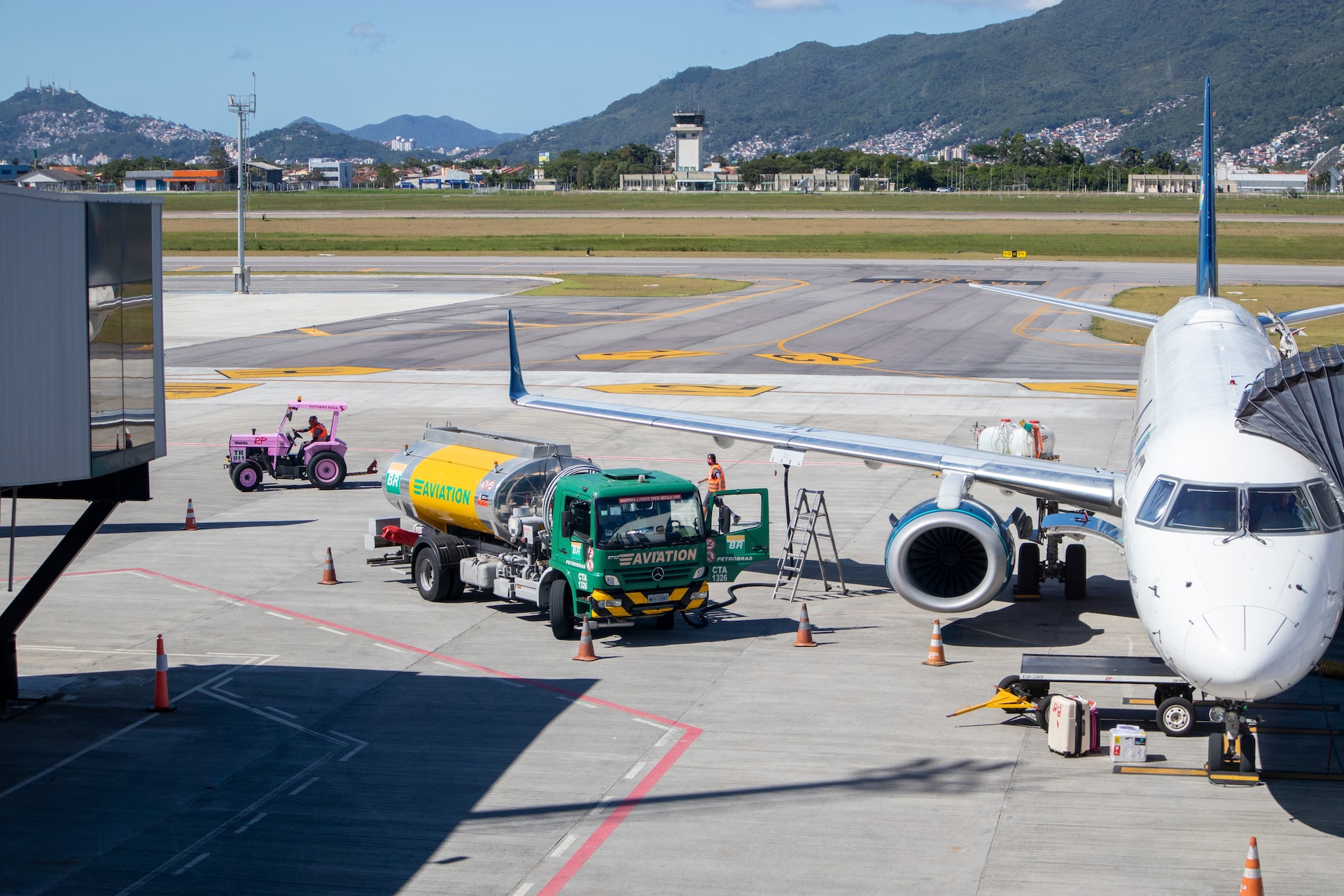
In addition to having extensive knowledge of technical aspects, the aviation industry requires professionals to also keep up-to-date with the latest developments and trends within the industry.
When it comes to the labor market, the air traffic industry offers aspirants many job opportunities from becoming a member of the flight crew as a pilot or flight attendant, to becoming an expert in aviation management who specializes in any of the management areas such as aviation safety management, or airline and airport management.
Of course, specific positions in the aviation industry will require specific certificates to be able to work, so it is important to find the best aviation certificate course for the role. If you are pursuing aviation courses to launch your career in the aviation industry, we invite you to keep reading as we share 10 great online aviation courses that will grant you an aviation certificate upon completion.
Top 10 aviation courses to launch your career in the aviation industry
The following courses are presented in no specific order, they are intended to show you 10 great opportunities to launch, or even revamp your career in the aviation sector.
Can You Ever Be Prepared for a Crisis Like an Aircraft Accident?
Aviation safety is a top priority for the industry. This free aviation course covers a very important part of safety which is managing a crisis like an aircraft accident.
This aviation safety management course will help you understand the importance of being prepared for such a difficult situation as well as how you can learn and build experience from it with the hope of never having to leave anything similar.
The course takes a real-life example that is used by the same expert who managed the crisis to explain why preparation for a crisis like that is key, and how an organization deals with the aftermath of an aircraft accident.
Learn more about this free aviation management course here.

Understanding Airport Operations
Airport management is a critical component of aviation management since airports are complex environments where operations must be carried out in synchrony between different organizations that make a living in the aviation industry.
Of course, if you want to become an airport operations manager, you first need to clearly understand what airport operations really are about, which is why this aviation course is a great way to get started.
With a focus on airport management, you will be learning how sophisticated operations can guarantee a better experience for the passengers when they are carried out properly, and you will also learn the aviation law that airports must adhere to, especially when it comes to ensuring the safety and security of the passengers.
Upon successful completion, you will be awarded a certificate of completion and the ability to understand how airport operators must interact with the rest of the stakeholders and how their decision-making process can affect the safety and security of the passengers.
Discover the Understanding Airport Operations course here.

Safety Management System for Ground Service Providers
Clearly, safety is a top priority in aviation, which is why you will find many aviation courses covering safety topics. Consequently, safety management is an essential part of aviation management.
There are many different types of aviation jobs, and among them, we can find those offered by ground service providers, the ground service agents. Ground agents play an important role in airline operations and airport safety. These agents provide airport ground handling services that include but are not limited to:
- Ticketing
- Luggage services
- Special needs handling
- Marshaling
- Chocking and Connection/Disconnection of Ground Services
- Luggage and Freight Handling
- Aircraft towing
- Refueling
- Aircraft cleaning
- De-icing
Some of these services may seem to be more closely related to safety than others. However, SMS implementation in a ground-handling organization provides many benefits including the management of the safety of its services, alignment with the requirements placed on airlines and airports, and preparation for ground-handling safety management regulations.
Setting and understanding safety policies; implementing safety reporting, identifying and analyzing hazards; mitigating and managing safety risks; and establishing safety objectives, safety performance indicators, and targets are key activities you will be learning by taking this course.
Learn more about the Safety Management System for Ground Service Providers course here.

Therefore, apart from receiving your certificate upon completion, you will be equipped to identify hazards and determine safety risks in ground handling operations among other things.
How to Become a Licensed Part-66 Engineer
Aircraft maintenance engineering is a great career path into aviation and one of the top aviation programs around the world. There are aviation courses dedicated to aircraft maintenance for both military and civil aviation online that cover specific topics too. However, it is important that you take the right certificate course to be allowed to work in your region.
Depending on your region, regulations from authorities like the Federal Aviation Administration (FAA) and the European Union Aviation Safety Agency (EASA) will require aircraft maintenance engineers and technicians to own specific certifications and licenses to perform maintenance activities on aircraft. Again, this is mainly for safety reasons.
In the case of EASA, you will be required to become a Licensed Part-66 Engineer to work in an EASA Part-145 Maintenance Repair Organization (MRO), and in this course, you will learn all about it.

PBN Training for Pilots
As you already know, aviation gives significant importance to safety. So, like maintenance professionals are required certifications and licenses, pilots are also required to complete several certificate courses that will grant them access to specific licenses.
For example, after completing the commercial pilot training, a pilot needs to pass a theoretical and a practical test to obtain a commercial pilot license. Something similar applies to a private plane pilot, and for airline transport pilots, of course.
Apart from basic aviation subjects, pilots are required to gain knowledge on more specific topics to pass the exams mentioned before. Among the most important topics, we must highlight navigation infrastructures.
PBN stands for Performance-Based Navigation, so with this course, pilots will get a good introduction to the world of navigation infrastructures by gaining all the necessary theoretical knowledge. Moreover, the course dives into the basic functions of Global Navigation Satellite Systems (GNSS) and the principles of different augmentation systems.
If you are a student pilot starting your licensing journey, or you are already a rated pilot looking to move to the next level, we invite you to check the PBN Training for Pilots here.

Aviation Landscape: Exploring the Opportunities & Trends in the Industry
Considering the aviation courses we have shared so far, it may seem that aviation management is all about safety and making sure operations run as smoothly as possible, right? Well, that is not completely true.
The Aviation Landscape: Exploring the Opportunities & Trends in the Industry is a good example that there is more in aviation than just controlling air traffic and moving passengers safely. As we mentioned above, it is important for aviation professionals to keep up-to-date, so exploring opportunities and trends is essential.
While aviation is a dynamic industry that is always evolving, recent events such as the pandemic and the crisis in Ukraine have recently brought the need for new changes.
By combining theoretical background and practical examples, this course will help you discover the current state of the industry, the responses of the airlines to change, and the opportunities and trends these changes are bringing with them.
Learn more about Aviation Landscape: Exploring the Opportunities & Trends in the Industry here.

Artificial Intelligence in Commercial Aviation – Practices & Future Trends
Continuing with the intention of keeping updated and learning about current and future trends, we had to share this interesting course on how commercial airlines and aviation, in general, are leveraging the power of growing technologies such as Artificial Intelligence and Machine Learning.
If you are interested in learning about AI and Machine Learning, and how they can be applied to civil aviation, you do not need to go to any of the popular aviation colleges.
This course will provide you with the fundamentals of these two technologies as well as the transformation required for all the organizations in the aviation industry to apply them and win in the data-driven age.
Discover the Artificial Intelligence in Commercial Aviation – Practices & Future Trends course here.

The Flightpath to a Greener Industry: Environmental Challenges & Initiatives in Aviation
Speaking of trends, the whole world is getting into the save the planet trend because it has been proven that the environment needs us to take action.
Of course, the air travel industry is known as the worst villain in this matter since it is the industry with the most carbon emissions reading. Fortunately, as resilient as it is, aviation is recognizing the challenges and taking the initiative to become a greener industry.
Now, before trying any innovative solution it is important to understand the challenges. And this course will help you with that. By getting an overview of the most relevant challenges the current environmental situation is bringing to aviation, and studying developing solutions like sustainable fuels and hybrid aircraft, you will be able to gain knowledge that will empower you to bring new ideas and strategies to the table.
Get awareness and add your own contribution by joining The Flightpath to a Greener Industry: Environmental Challenges & Initiatives in Aviation course here.

The Economics of Air Transport Through Examples and Case Studies
We could not have a top 10 aviation courses list without any course on the business side of the industry. Obviously, this course is not like MBA and MSc degrees from top aviation colleges, but with this course, you will get a great introduction to the economics of air transport and an overview of the economic impact of making better decisions for your organization.
With this course, you will learn about the different economic tools, techniques, and analytical frameworks along with various economic performance indicators, and economic drivers that will allow you to understand how aviation economics work and how they have evolved.
The course also covers some techniques that help business management to predict possible results and make better decisions for the future of the company.
Discover The Economics of Air Transport Through Examples and Case Studies here.

Airline Sales Management: Sales Techniques to Increase Airline Revenues
Competition in the airline industry is fierce, so developing innovative and effective sales techniques and strategies is vital for any airline to stay in business and become profitable.
Historically, sales and communication skills have been essential for businesses to see revenue growth, so getting the basic knowledge and proper training on these aspects can lead to great success. This is supported by stats showing that sales training can lead to 80% more revenues in your company.
This online course on airline sales management covers in-depth knowledge of how the sales department connects with revenue management, network, or even marketing teams.
Moreover, the course will guide you through the sales process while helping you understand the different business models used in one of the highest-paying industries in the world.
Discover everything sales related, from simple tips and tricks to top-notch pricing strategies applied to a real-life example. Learn more about the Airline Sales Management: Sales Techniques to Increase Airline Revenues course here.

Which is the best aviation certificate?
We have shared 10 great courses that will award you a certificate of completion to demonstrate you have gained knowledge on the given topic. However, we cannot tell you which is the best aviation certificate.
This depends on many aspects, beginning with your specific aspirations and goals. For example, How to Become a Licensed Part-66 Engineer would be a great option if you are interested in the maintenance services business, but this would not do if you are trying to become an Airline Transport Pilot (ATP).
In short, the best you can do is to decide what you want to achieve and start your course selection with those goals in mind.
Closing remarks about aviation certificates
Evidently, this top 10 was not intended to be a comprehensive list of online courses covering aviation topics. Yet, this list points out 10 courses that are among the best ways to learn basic concepts that are essential for aviation professionals but also to dig deeper into relevant topics in the current aviation ecosystem such as airport safety.
We know there are many other options out there, with some of them covering topics we did not mention in this guide. Perhaps, you may be interested in specific cabin crew training, or courses focused on things like air traffic control, aviation hospitality, fleet management, or air cargo supply chain.
Fortunately for you, we are constantly updating our catalog of courses, and we already include some of those topics too. So, we invite you to check them out.